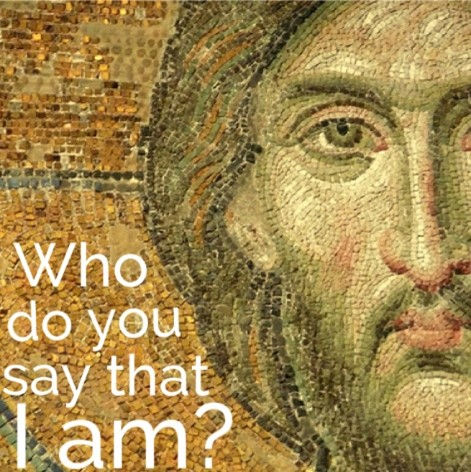Sunday 27th August 2023 - Twenty-first Sunday in Ordinary Time
- brendanflaxman
- Aug 26, 2023
- 4 min read

Isaiah 22:19-23/ Psalm 137(138)/ Romans 11:33-36/ Matthew 16:13-20
If Jesus asked to you today, ‘who do you say I am?’ what would be your answer? As a Christian there are certain things that we need to accept and believe. One of them is what Peter acknowledged when he answered that question put to him and the other disciples, ‘you are the Christ, the Son of the living God’. Peter was able to give this answer because this fundamental truth about Jesus had been revealed to him through faith. Jesus is God the Son, the second person of the Trinity, one God together with the Father and Holy Spirit.
It is not enough to think of Jesus as simply a kind-hearted itinerant teacher who roamed around Israel over two thousand years ago. Throughout his three years of earthly ministry Jesus made it clear through his miracles and his teaching that he was non other than God the Son who had taken on human flesh, lived, suffered and died as a human being to lead us through earthly death into heavenly salvation.
The literature scholar and former atheist C. S. Lewis came to the same conclusion about Jesus as had Peter so many years before him. Lewis lectured and wrote extensively on the belief in who Jesus is and warned against accepting that Jesus was merely a great moral teacher but was not God, arguing that ‘A man who was merely a man and said the sort of things Jesus said would not be a great moral teacher. He would either be a lunatic, on the level with the man who says he is a poached egg, or else he would be the Devil of Hell’. The argument goes that either Jesus is the Son of God, or a madman or something worse. To Lewis Jesus was neither a madman nor evil commenting that, ‘however strange or terrifying or unlikely it may seem, I have to accept the view that He was and is God’. This is what Peter had been inspired to acknowledge and it is what we are called to accept as Christians.
Throughout his ministry Jesus made it clear that he was not a mere human being created by God but was himself God. He did this through his miracles, his entitlement to forgive sins, his claim to have always existed and his promise to return at the end of time to pass judgement on the world. In his miracles, Jesus did not cure all the sick people around him, he did not bring many people back from the dead, and he did not feed everyone who was hungry. Through his miracles Jesus displayed his mastery over creation so that his claim to be God could be recognised. Surely only the creator would not be bound by the rules he put in place to govern creation. Sin is a direct offence to God so naturally only God would be able to forgive sin and Jesus claimed the right to do so. No ordinary human being could make the claim to have existed before all time and to promise to return at the end of time. As Lewis suggested these claims are madness or true. There is no halfway house. Jesus was either who he claimed to be or else a deranged deceiver.
Having accepted that Jesus is God then we must also accept his authority. In the Gospel passage for today by his own authority Jesus founds his church on earth on the apostle Simon renaming him Peter, which means rock. It is on the rock of St Peter that the church is founded, and the extraordinary authority then given to Peter has been handed down in succession from every Pope since then. We abandon this authority at our peril because only those things bound or loosed on earth through this authority are considered bound and loosed in heaven. If we move away from the authority entrusted to Peter by Jesus, we cannot guarantee that we are following the right path and in harmony with the wishes of God. Amid the many uncertainties of this world we need the solid reassurance that we are living under the authority and care of God.
Paul points out in the second reading that we cannot understand the plans or methods of God, we cannot challenge his reasoning. It is futile and dangerous to try and impose human thinking and reasoning on to God. We are made in the image and likeness of God but we must not try and impose our image and likeness onto God.
Jesus asks each of us the question he asked his disciples, ‘who do you say I am?’ Jesus is the Christ, the Son of the living God. Acknowledging this we seek to follow him and the best way of doing that is through the church Jesus founded on the man he called Rock. Peter was not perfect, none of us are, he was impetuous, hot headed and even went as far as denying knowing Jesus when challenged. Despite his very human weaknesses Jesus chose Peter to lead his church on earth and gave him extraordinary authority to enable him to do so. We are not perfect, but Jesus encourages us to keep following him regardless of the number of times we might fail. The only certainty we have in this world is the knowledge of who Jesus is and the redemption he offers us.
God Bless, Brendan.